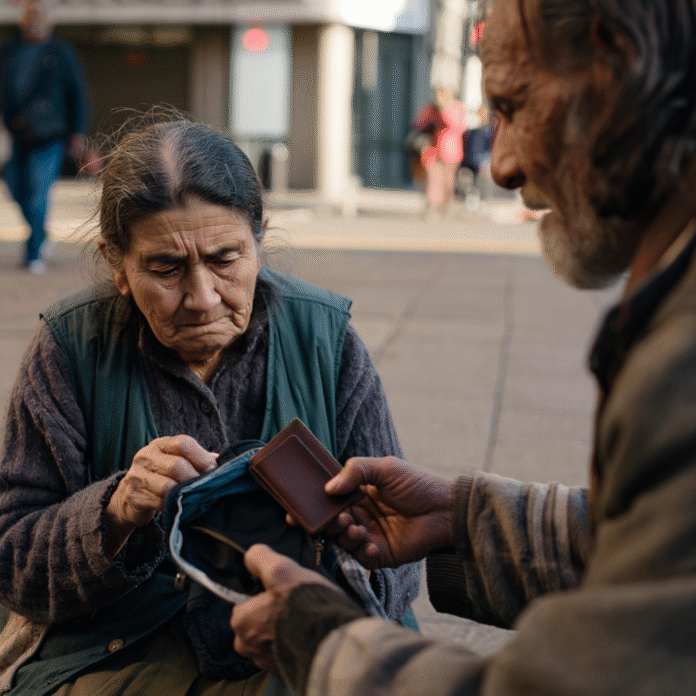Maria Johnson, a single mother from New Jersey, knew the crushing weight of poverty. Working three exhausting jobs a day, she barely scraped enough to pay rent and feed her son.
One freezing winter night, disaster struck. Maria lost her wallet — inside was $450, her entire rent money. “I felt my world collapse. That wallet was my last lifeline,” she admitted.
But fate had other plans. A homeless man, ragged and hungry, stumbled upon the wallet. Instead of pocketing the money, he knocked on Maria’s door. Handing it back, he simply said: “This belongs to you. Don’t give up.”
Maria wept. That small act of honesty saved her family.
Fast forward a decade — Maria’s son, Daniel, had grown into a sharp, respected lawyer. During a trial, he was stunned when the defendant was none other than the same homeless man who once saved his mother.
Standing in court, Daniel declared:
“This man isn’t a criminal. He’s a hero who gave my family a second chance. And today, it’s my turn to give him one.”
With Daniel’s defense, the man was freed, offered housing, and eventually a stable job.
The story spread online like wildfire, sparking heated debates about kindness, fate, and justice. One viral comment summed it up best: “Sometimes, the smallest act of good comes back as the biggest miracle.”
